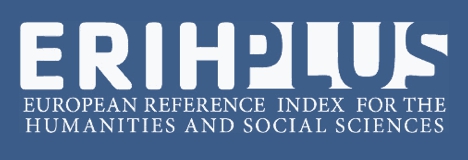Ludicity in the teaching and learning process: the geoenvironmental bingo as a pedagogical tool in geography
Abstract
The present article aims to contribute to the teaching and learning process, from the creation of geoenvironmental bingo as a pedagogical tool, capable of instigating the understanding of socio-environmental impacts in a local/global relationship. The study was carried out with high school students of the Joaquim Vieira Sobral High School in Aracaju-SE. In the methodological procedures, it was prioritized the relation theory and practice based on: bibliographic survey; field lessons around the Poxim River and school; preparation of didactic material with students. The results evidenced the relevance of playfulness in the analysis of geographic contents and the awakening of the critical and reflexive view of the students, from social and environmental reality in a local/global relationship. The creation and use of geo-environmental bingo stimulated the student's cognitive ability and the process of being the protagonist, by instigating them to understand the relationship between society and nature, as well as seeking solutions to solve the local problems.
References
CASTELLAR, Sônia; VILHENA, Jerusa. Ensino de Geografia. São Paulo: Coleção Ideias em Ação. Cengage Learning, 2010.
_________ Mudanças na prática docente. In: REGO, Nelson; CASTROGIOVANNI, Antonio Carlos; KAERCHER, Nestor André. (Org.) Geografia. Práticas pedagógicas para o ensino médio. Porto Alegre: Penso, 2011.
CASTROGIOVANNI, Antonio Carlos. Espaço Geográfico Escola e os seus Arredores – descobertas e aprendizagens. In: CALLAI, Helena Copetti. Educação Geográfica: reflexões e práticas. Ijuí – RS: Ed. Unijuí, Coleção Ciências Sociais, 2011.
COSTELLA, Roselane Zordan. Movimentos para (Não) dar aulas de Geografia e sim capacitar o aluno para diferentes leituras. In: CASTROGIOVANNI, Antonio Carlos; TONINI, Ivaine Maria; KAERCHER, Nestor André. (Org.). Movimentos no ensinar Geografia. Porto Alegre: Imprensa Livre: Compasso Lugar-Cultura, 2013.
KAERCHER, Nestor André. Os movimentos que meus mestres me ensinam: DDD’S, Signos, Alimentos, Escadas, Luzes, Grenais. In: CASTROGIOVANNI, Antonio Carlos. Movimentos no ensinar Geografia. Porto Alegre: Imprensa Livre: Compasso, 2013.
_________ A Geografia é o nosso dia-a-dia. In: CASTROGIOVANNI; Antonio Carlos. et. al. (Orgs.) Geografia em sala de aula: práticas e reflexões. Porto Alegre, UFRGS, 2013.
PUNTEL, Geovane Aparecida. Os mistérios de ensinar e aprender Geografia. In: REGO, Nelson; CASTROGIOVANNI, Antonio Carlos; KAERCHER, Nestor André. (Orgs.). Geografia: Práticas pedagógicas para o ensino médio. Porto Alegre: Artemed, 2007.
RUPEL, Márcia Aparecida Pavelski. Atividades lúdicas: proposições metodológicas para o ensino da Geografia escolar. PDE/2008-2009/UFPR.
SANTOS, Sindiany Suelen Caduda. Conservar o quê? Para quem? Áreas protegidas e protagonistas da conservação. 1. Ed. Curitiba: Editora Appris, 2015. 177p.
SILVA, Maria do Socorro Ferreira da; SILVA, E. G. Um olhar a partir da utilização de dinâmicas como ferramenta para o ensino escolar. Caminhos de Geografia (UFU), v. 13, p. 128-139-139, 2012.

This work is licensed under a Creative Commons Attribution-NonCommercial 4.0 International License.
Policy Proposal for Free Access Journals
Authors who publish in this journal agree to the following terms:
a. Authors retain the copyright and grant the journal the right of first publication, with the work simultaneously licensed under the Creative Commons Attribution License which allows the sharing of the work with acknowledgment of the authorship of the work and initial publication in this journal.
b. Authors are authorized to take additional contracts separately, for non-exclusive distribution of the version of the work published in this journal (eg publish in institutional repository or as a book chapter), with acknowledgment of authorship and initial publication in this journal.
c. Authors are allowed and encouraged to publish and distribute their work online (eg in institutional repositories or on their personal page) at any point before or during the editorial process, as this can generate productive changes, as well as increase the impact and The citation of published work (See The Effect of Free Access).





















